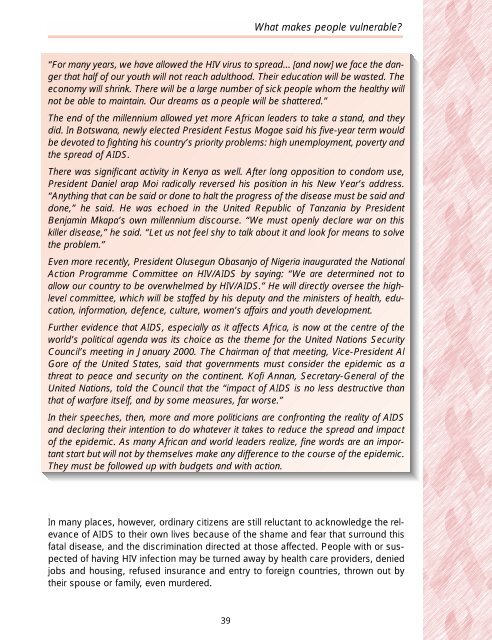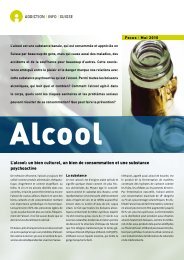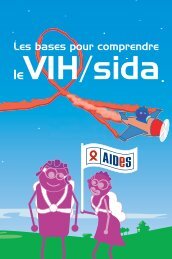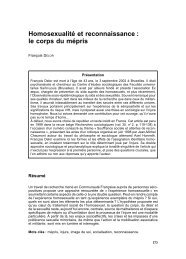Care and support for people living with HIV/AIDS
Care and support for people living with HIV/AIDS
Care and support for people living with HIV/AIDS
You also want an ePaper? Increase the reach of your titles
YUMPU automatically turns print PDFs into web optimized ePapers that Google loves.
What makes <strong>people</strong> vulnerable?“For many years, we have allowed the <strong>HIV</strong> virus to spread... [<strong>and</strong> now] we face the dangerthat half of our youth will not reach adulthood. Their education will be wasted. Theeconomy will shrink. There will be a large number of sick <strong>people</strong> whom the healthy willnot be able to maintain. Our dreams as a <strong>people</strong> will be shattered.”The end of the millennium allowed yet more African leaders to take a st<strong>and</strong>, <strong>and</strong> theydid. In Botswana, newly elected President Festus Mogae said his five-year term wouldbe devoted to fighting his country’s priority problems: high unemployment, poverty <strong>and</strong>the spread of <strong>AIDS</strong>.There was significant activity in Kenya as well. After long opposition to condom use,President Daniel arap Moi radically reversed his position in his New Year’s address.“Anything that can be said or done to halt the progress of the disease must be said <strong>and</strong>done,” he said. He was echoed in the United Republic of Tanzania by PresidentBenjamin Mkapa’s own millennium discourse. “We must openly declare war on thiskiller disease,” he said. “Let us not feel shy to talk about it <strong>and</strong> look <strong>for</strong> means to solvethe problem.”Even more recently, President Olusegun Obasanjo of Nigeria inaugurated the NationalAction Programme Committee on <strong>HIV</strong>/<strong>AIDS</strong> by saying: “We are determined not toallow our country to be overwhelmed by <strong>HIV</strong>/<strong>AIDS</strong>.” He will directly oversee the highlevelcommittee, which will be staffed by his deputy <strong>and</strong> the ministers of health, education,in<strong>for</strong>mation, defence, culture, women’s affairs <strong>and</strong> youth development.Further evidence that <strong>AIDS</strong>, especially as it affects Africa, is now at the centre of theworld’s political agenda was its choice as the theme <strong>for</strong> the United Nations SecurityCouncil’s meeting in January 2000. The Chairman of that meeting, Vice-President AlGore of the United States, said that governments must consider the epidemic as athreat to peace <strong>and</strong> security on the continent. Kofi Annan, Secretary-General of theUnited Nations, told the Council that the “impact of <strong>AIDS</strong> is no less destructive thanthat of warfare itself, <strong>and</strong> by some measures, far worse.”In their speeches, then, more <strong>and</strong> more politicians are confronting the reality of <strong>AIDS</strong><strong>and</strong> declaring their intention to do whatever it takes to reduce the spread <strong>and</strong> impactof the epidemic. As many African <strong>and</strong> world leaders realize, fine words are an importantstart but will not by themselves make any difference to the course of the epidemic.They must be followed up <strong>with</strong> budgets <strong>and</strong> <strong>with</strong> action.In many places, however, ordinary citizens are still reluctant to acknowledge the relevanceof <strong>AIDS</strong> to their own lives because of the shame <strong>and</strong> fear that surround thisfatal disease, <strong>and</strong> the discrimination directed at those affected. People <strong>with</strong> or suspectedof having <strong>HIV</strong> infection may be turned away by health care providers, deniedjobs <strong>and</strong> housing, refused insurance <strong>and</strong> entry to <strong>for</strong>eign countries, thrown out bytheir spouse or family, even murdered.39











